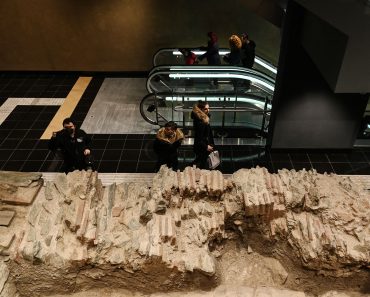
Greek Prime Minister Kyriakos Mitsotakis (L) speaks during a joint press conference with Lebanese caretaker Prime Minister Najib Mikati (R) following their meeting at the government palace in Beirut, Lebanon, on 16 December 2024. [Wael Hamzeh/EPA]
In a visit underscoring Greece’s deepening interest in the Middle East, Prime Minister Kyriakos Mitsotakis became the first EU leader to travel to Lebanon on Monday following the recent ceasefire in the country’s south. Meeting with Lebanese Prime Minister Najib Mikati, Mitsotakis pledged Greek support for regional reconstruction and highlighted its role in fostering dialogue across communities and states in this historically volatile area.
“The fact that I am the first foreign leader to visit Lebanon after the ceasefire and the developments in Syria is significant to me,” Mitsotakis said, emphasizing Athens’ commitment to stability and cooperation. His counterpart Mikati responded, stressing that “in many ways, we are neighbors, Cyprus and Greece are so close, and we always strive for the best relationship with them.”
The visit also included meetings with Patriarch John X of Antioch and representatives of the Greek Orthodox community, a reflection of Greece’s historical role as a protector of Christian minorities in the region. This symbolic connection bolsters Greece’s aim to remain a neutral but active interlocutor in the Middle East, capable of engaging with diverse religious and political entities.
Diplomatic considerations are coupled with strategic concerns. With Cyprus positioned as a frontline EU state near Lebanon and Syria, Greece views these developments through the lens of regional security. The proximity of Lebanon’s and Syria’s coasts to Cyprus – especially amid increasing Turkish influence – underscores Athens’ vigilance.
Mitsotakis also expressed Greece’s willingness to assist in modernizing the Lebanese armed forces, particularly the navy, offering NATO-backed expertise. This gesture signals Greece’s ambition to play a larger role in Middle Eastern stability, even as its NATO and EU memberships complicate relations with key regional players like Turkey.
Meanwhile, the ever deepening defense ties between Cyprus and the US have drawn ire from Turkey, with Turkish Defense Minister Yasar Guler criticizing the growing cooperation as “damaging to the sensitive balance on the island.”







